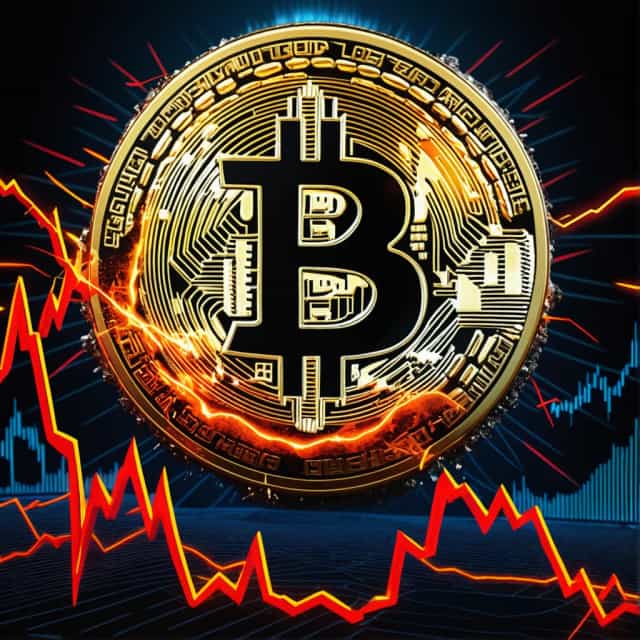
Image source: Block Media
KOSPI Slides Toward 3,500 Amid U.S.-China Strains; Samsung Electronics Outpaces Expectations
The KOSPI index faced renewed headwinds on heightened U.S.-China tensions and profit-taking following Samsung Electronics’ stellar earnings report, edging the benchmark closer to the 3,500 mark. Global geopolitical uncertainties and internal market dynamics combined to drive the index into negative territory.
KOSPI Retreats Amid Heightened Market Uncertainty
On October 14, the KOSPI closed at 3,561.81, down 22.74 points or 0.63% from the previous day’s finishing level of 3,584.55. The index began the session sharply lower at 3,550.08, a drop of 60.52 points or 1.68% from the prior session's 3,610.60. Despite initial recovery attempts, losses deepened throughout the trading day as broader market pressures weighed on investor sentiment.
The KOSPI briefly reclaimed the 3,600 level in intraday trading, buoyed by optimism surrounding Samsung Electronics’ earnings. However, geopolitical concerns—driven by escalating tensions between the U.S. and China—ultimately eroded confidence, leading to a pullback. Market participants also seemed wary of political uncertainty in Japan, which compounded the overall risk-off sentiment.
Samsung Electronics: Strong Earnings, Profit-Taking Follows
Samsung Electronics provided early optimism with its third-quarter earnings report surpassing market expectations. The electronics giant posted a strong operating profit, sparking an intraday surge in its stock price to 96,000 won per share. However, as Shinhan Investment Corp. researcher Jae-Won Lee explained, “The better-than-expected earnings initially propelled the KOSPI to an intraday high of 3,645. Selling pressures later emerged as profit-taking took hold amidst rekindled worries about China’s economic trajectory.”
Lee highlighted the need for cautious optimism. “While macroeconomic and geopolitical uncertainties are contributing to heightened volatility, Samsung Electronics has proven its earnings resilience. Investors should prioritize companies with strong profit drivers, especially as the third-quarter earnings season gains momentum,” he advised.
Institutional Selling Loses Grip on Early Gains
A prominent feature of the session was institutional investors unloading significant holdings, countering support from both retail and foreign investors. Institutional traders were net sellers, offloading 948.6 billion won worth of equities, overwhelming the buying activity of retail investors (500.8 billion won) and foreign investors (392.4 billion won).
Samsung Electronics’ stock, after reaching a record intra-session high, succumbed to profit-taking, closing down 1.82% at 91,600 won. Other blue chips posted mixed performances: SK Hynix fell by 0.84%, Doosan Enerbility dropped 2.32%, and Hanwha Aerospace plummeted 6.04%. In contrast, LG Energy Solution surged 6.94%, driven by robust market sentiment, while Hyundai Motor rose 2.06%.
KOSDAQ Struggles Despite Retail Support
The secondary KOSDAQ index mirrored the mixed movement of the broader market. Closing at 847.96, the index shed 12.53 points or 1.46% compared to the previous session’s 860.49. Although the KOSDAQ opened higher at 865.37, up 0.57%, it failed to hold its gains, slipping into the red by day’s end.
Retail investors played a crucial role in shoring up the KOSDAQ, net-buying 276.2 billion won worth of shares. However, their efforts were overshadowed by the selling activities of foreign investors (150.8 billion won) and institutions (120.1 billion won).
Stock performance on the KOSDAQ was a mixed bag. EcoProBM rose 5.01%, while its parent company, EcoPro, gained 3.70%. Alteogen managed a modest increase of 0.45%. On the other hand, Peptron plunged 4.97%, while HLB and LIG ChemBio suffered declines of 3.30% and 3.10%, respectively.
Currency Market Sees the Korean Won Weaken
In the currency market, the South Korean won depreciated against the U.S. dollar amid ongoing market volatility. The won-dollar exchange rate rose to 1,431.0 KRW, an increase of 5.2 KRW from the previous session’s close of 1,425.8 KRW. The fluctuations in the exchange rate reflected broader uncertainties related to macroeconomic headwinds and geopolitical strains.
Outlook: Volatility Likely to Persist
As the third-quarter corporate earnings season progresses, heightened market volatility seems inevitable. Investors will continue closely monitoring global geopolitical developments, especially U.S.-China relations, as well as key macroeconomic trends such as currency fluctuations. With Samsung Electronics leading the early earnings pack, market participants are expected to focus on companies demonstrating strong fundamentals and clear profit-generation capabilities. These factors will play a critical role in shaping near-term market trajectories.










